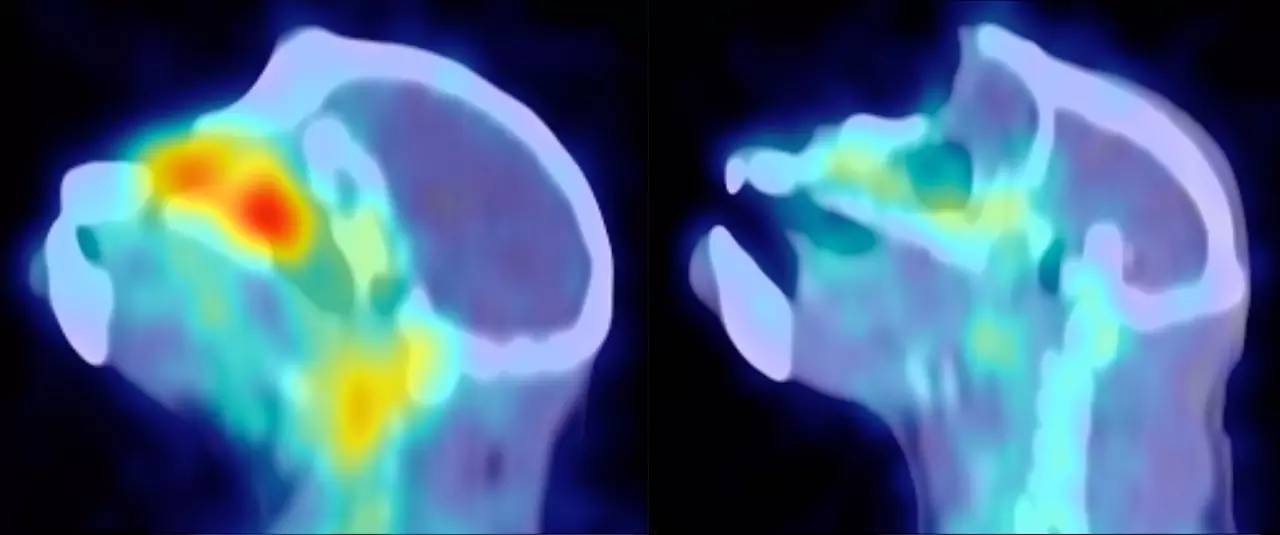Scientists cured the AIDS of monkeys for the first time
October 18, 2016 Source: Singularity Network -
Window._bd_share_config={ "common":{ "bdSnsKey":{ },"bdText":"","bdMini":"2","bdMiniList":false,"bdPic":"","bdStyle":" 0","bdSize":"16"},"share":{ }};with(document)0[(getElementsByTagName('head')[0]||body).appendChild(createElement('script')) .src='http://bdimg.share.baidu.com/static/api/js/share.js?v=89860593.js?cdnversion='+~(-new Date()/36e5)];“Very interesting!†“It’s amazing, I can’t believe it is true!†These are the first reactions of researchers to a new “AIDS treatmentâ€. However, no one expected that this new treatment is based on the traditional standard therapy, plus Vedolizumab, a drug for the treatment of intestinal inflammation, which magically "cure" the AIDS of the rhesus monkey, and even stop the drug. After a month, the monkey's "AIDS" virus was hardly detected in the rhesus monkeys!
However, the "cure" here is not to completely eliminate HIV, but to mean that the virus in the patient's body is completely inhibited, and the body's immune function is normal. Even if it is not treated, it is difficult to detect the virus in the blood by conventional methods. This is also the "functional cure" that researchers have been studying. After all, there is no way to completely eliminate HIV. Currently, the most common treatment in the clinic is to take antiretroviral drugs (ARV), but this drug needs to be taken for life. Once the drug is stopped, there is no drug suppression, and the virus in the body will rebound quickly. In addition, adverse reactions such as chronic inflammation, lactic acidosis, and liver damage caused by long-term medication are inevitable.
This is why researchers have been trying to develop a treatment that is less invasive and more effective. If the patient can get rid of the “lifetime systemâ€, this will be a historic improvement in the history of AIDS treatment. Therefore, the research results published in the journal Science will make researchers so excited. [1]
The antibody that makes the "sweat" is "α4β7" antibody, which is modified by what we call the antibody drug Vedolizumab, which is used to treat a refractory intestinal inflammatory disease (Crohn's disease). of. In this disease, CD4 cells in the gut play a very important role, and coincidentally, the main target of HIV is also CD4 cells. It may be for this reason that researchers have been inspired to use the “α4β7†antibody to help treat AIDS.
At the time of infection, the virus "hids" in the intestines, "hijacking" the CD4 cells that enter the intestines into "hosts", replicating them, and then spreading them across the body to create large areas of chronic infection. Therefore, the number of CD4 cells in AIDS patients will be greatly reduced. According to Lutz Walter, lead researcher at the Göttingen Primate Research Center in Germany, “α4β7†antibodies prevent CD4 cells from entering the intestinal mucosa, thus preventing the virus from “hijacking†them.
Immunodeficiency viruses are not only available to humans, but also monkeys. In monkeys, they are called monkey immunodeficiency virus (SIV). The subject was a rhesus monkey infected with SIV. After 5 weeks of infection, the monkeys began taking antiretroviral drugs commonly used in therapy. From the 9th week, they received an injection of "α4β7" antibody. . By the 18th week, the antiretroviral drugs were stopped and only the antibody injection was continued. Until the 32nd week, the antibody injection was over, and the treatment of the monkeys came to an end.
In contrast to these rhesus monkeys receiving combination therapy, small monkeys that received the same dose of antiretroviral drugs using conventional methods. Also after the 32-week withdrawal, as expected, the virus in the control rhesus monkey rebounded rapidly. In the experimental group, the SIV virus in the monkeys remained at a low level, and the CD4 cells in the immune system also returned to normal levels. In the two years after the end of treatment, the monkeys always maintained a low virus amount. The normal health of the immune system.

The left picture shows the scan of a rhesus monkey infected with HIV, and the right is the treatment with "α4β7" antibody.
The success of the experiment was gratifying, and the researchers quickly began a preliminary clinical trial of "Vedolizumab + antiretroviral drugs" (NCT02788175) in human patients. The experiment included a total of 15 patients. For this achievement, Rafick-Pierre Sékaly, an immunologist at Case Western Reserve University, believes that this will provide new directions for the study of AIDS treatment and will lead to many similar studies.
However, there are certain positive and questionable voices. Some researchers believe that the Walter team started prematurely treating rhesus monkeys infected with SIV virus. After all, few AIDS patients can receive treatment in the 5th week of illness, and The "power" of SIV may be weaker than HIV, which may make their research fall short. In this regard, Walter researchers are full of confidence. "We have enough reason to believe that they can play the same role in humans. I think this will be a 'breakthrough' future therapy."
Antimicrobial Central Venous Catheter
Central Venous Catheter,CVC,central venous catheter set,central venous catheter double lumen,central venous catheter kit
Anesthesia Medical Co., Ltd. , https://www.jssinoanesthesias.com